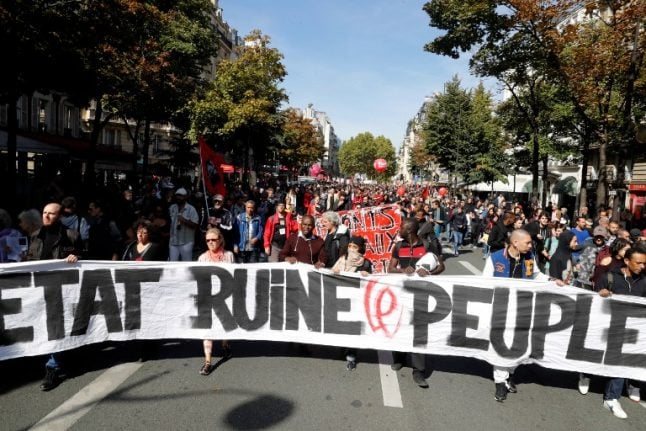As the French economy picks up after a long period of slow growth, conditions are now favourable for Macron's plan to overhaul the labour market, cutting deficits and lowering taxes to make a real impact, the IMF said in a report on France.
Now everything is down to those plans becoming reality, the lender cautioned.
“Medium-term prospects will critically depend on the implementation of the reform agenda,” it said.
Meanwhile, the French economy is picking up pace, with the IMF projecting 1.6 percent growth of the gross domestic product (GDP) this year, rising to 1.8 percent in 2016, after just 1.2 percent last year.
“There is now an important window of opportunity for a bold and comprehensive strategy to boost growth, reduce unemployment, ensure the sustainability of public finances, and improve competitiveness, while also promoting inclusiveness and social mobility,” the IMF said.
The report said implementation of the programme will be the “key challenge”, especially with regards to fiscal overhaul and labour market reforms.
But it is precisely labour reform that has become a major bone of contention back in France, with unions having staged big protests and announcing more.
Thursday saw new protests against an overhaul of the country's labour code as unions hope to build pressure on Macron days before his signature reform is expected to become law.
The marches came a week after hundreds of thousands of people — 200,000 according to police, half a million according to organisers — demonstrated against the plan, in the first challenge to Macron since he was elected in May.
But the IMF said that if Macron manages to get his way, the economicrewards could be substantial.
“Comprehensive labour, tax, and spending reforms would help raise potential growth and boost employment while rebuilding room for fiscal manoeuvre,” the Washington-based body said.
But the IMF's directors also pointed to “past fiscal slippages” in France and the coming cost of planned tax relief measures.
“Success will critically depend on the timely specification and implementation of efficiency-oriented expenditure reforms”, they said.
France would do well to undertake “comprehensive spending reviews” which could “help identify savings at all levels of government while ensuring adequate social protections, which would help make consolidation sustainable”.
It also recommended measures beyond the current labour market reform to tackle France's high longterm structural unemployment.
France last month reported a five-year low in its unemployment rate for the second quarter at 9.5 percent which is, however, still nearly twice the jobless rate of Germany or Britain.





 Please whitelist us to continue reading.
Please whitelist us to continue reading.